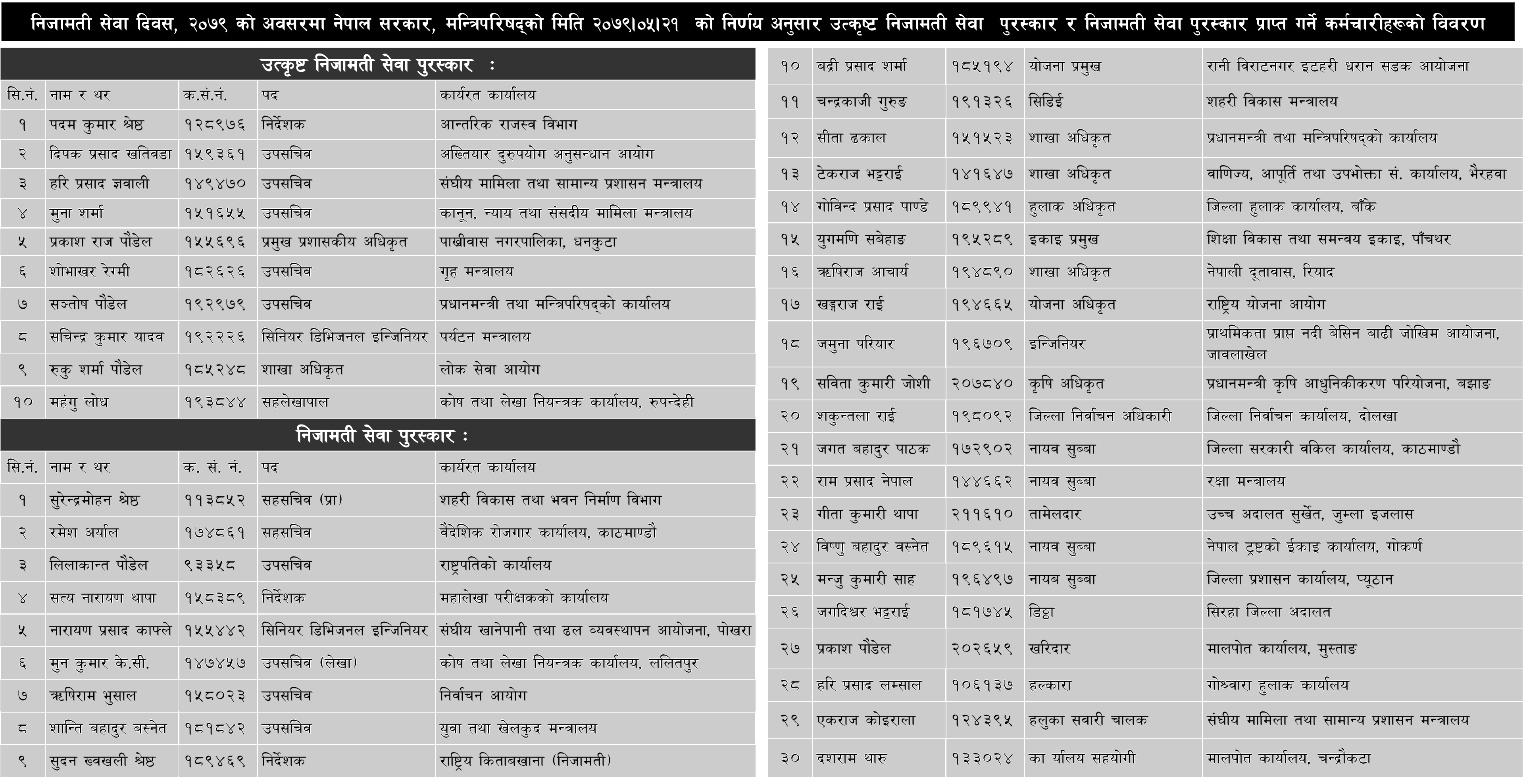
Civil Service Day is celebrated in Nepal every year on Bhadra 22 by organizing various programs across the country. The administration is needed to run the country, and today is the day for the services provided by government-appointed administrators or employees, Civil Day. This day started in the year 2062 B.S., in fact, this day started to be celebrated after the Civil Act was introduced by the then Prime Minister Tank Prasad Acharya on 22nd Bhadra 2013 B.S. On this day, the Ministry of General Administration organizes programs to reward the best civil servants, and honor ex-employees i.e. retirees, etc. to encourage and inspire various civil servants.
The ideal and existence of civil service is directly connected with the state and the role of civil servants is incomparable in order for the state to provide its citizens with its presence and administration based on justice. The ideals of the civil service and the behavior of other sectors in this sector reveal public confidence in good governance and administration. Max Weaver, the world-famous German sociologist, and philosopher has described bureaucracy or civil society in his various books and ideas as a very deep, sensitive, and ideal bureaucracy.
According to him, civil service is the bridge to realize the state's wishes and bring the state to the doorsteps of citizens. The state is a body that is accountable to the representatives we have elected and sent to the people, the executive, the judiciary and the administration together create the rules and laws required by the state, follow them and punish those who violate the law. Although the democratic practice has ensured that the people have an all-round hand in running the state, in the case of Nepal, most of the common people are not within the reach of an easy administration and an accessible state.
This service, which is considered to be a permanent system of qualified, competent and empowered human resources, has a lot of expectations from the service users, and the state has also made it a simple and convenient means of presence. Civil service has its own height, its own speed and method.
There are four main reasons or objectives for starting to celebrate Public Service Day in the world. First, increasing respect for the value of public services in the community. Second, to discuss and appreciate the contribution of public administration in the development process. Third, recognizing the performance of employees. And, fourth, to create an environment to attract young people to public administration. It can be considered that the civil service of Nepal has started celebrating the 'Civil Service Day' since 2004, accepting and following the principles of Public Service Day.
On the occasion of Public Service Day, the world is divided into five regions and the 'UN Public Service Award' is also given, just like civil service awards are given in our country. The difference is that in our country it is given to individuals and the United Nations to organizations. No organization can claim to get the award by itself. Others should recommend. These things show a clear difference between their method and ours. It generally indicates that we are individualistic (self-centric) rather than institutional. Because here there have been examples of someone recommending his own name with the claim that he should get the award.
In different countries of the world, civil service is sometimes known as civil service, public administration, or civil service. Regardless of the name, its basic function is to provide public services in an efficient and fair manner. And the more agile and competent the service delivery is, the more the public evaluates the civil service and servants. The main reason for the use of new concepts in the field of public administration by the civil services of different countries around the world is to bring efficiency in service delivery. Be it Britain's Citizen Charter or South Africa's concept of 'Batho Pele' meaning people first. In the same way, regardless of whether the service agreement in New Zealand is 'contracting out', the purpose of all is the same - how to make the service public-oriented. Nepal has also gradually started using the concepts that have been reflected in the world administrative environment. The implementation of some of them has been done well, while others have been lax.


